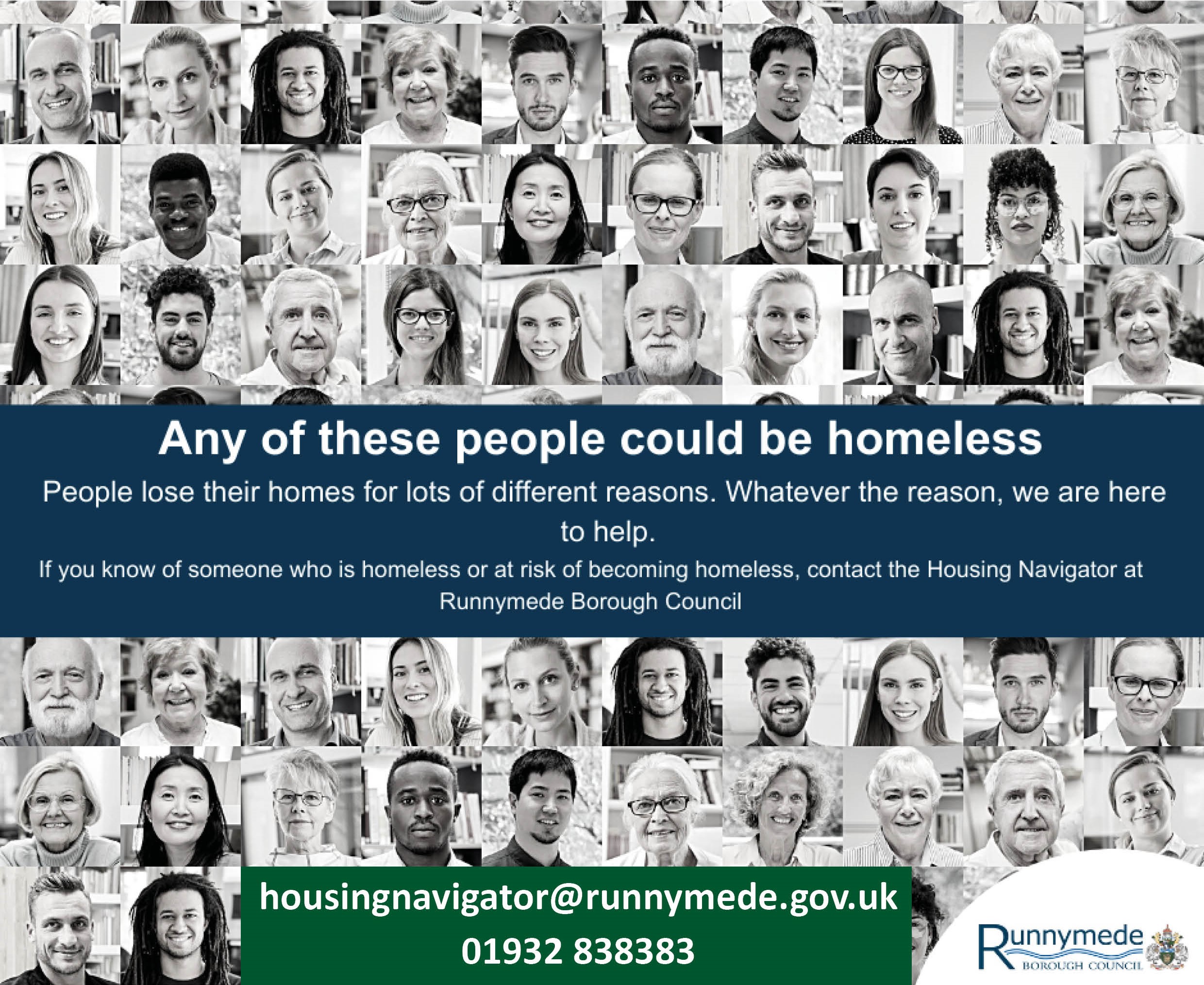People who find themselves without a home, or who are sleeping rough can be amongst the most at-risk in our society. One of the important duties we have is to support them when help is asked for.
The way we deliver that help and support is set out in our Homelessness Strategy. We have had strategies in place for many years, and are currently developing the next one which will apply from 2025-28.
As well as the individual people directly involved, homelessness and rough sleeping are community issues, so we welcome views from all residents and organisations with an interest in the topic.
Here are some highlights from the work carried out under our current Homelessness and Rough Sleeping Strategy 2019 to 2024 which gives an idea of the type of work we do.
Year one
Great progress has been made in ensuring that our response is agile and robust in assisting those who approach us as homeless. For example, in the first year of the current Homelessness Strategy the Council continued to embed and embrace the significant changes which the Homelessness Reduction Act 2017 introduced.
Among the steps we took were setting up a shared house, which provided eight bed spaces for single homeless people, and reduced the use of expensive emergency accommodation.
There was also a strong focus on tenancy and social housing fraud as well as a review of our nomination agreements so that customer service and preventing homelessness remained at the forefront of our approach.
The Homelessness Strategy was renamed the Homelessness and Rough Sleeper Strategy in early 2020 to reflect the Government’s commitment to ending rough sleeping.
Year two and three
Whilst the progress of the second year of the Strategy was complicated by the outbreak of Coronavirus, the Council continued to secure significant outcomes. These included reviewing the Council’s Allocations Scheme, enhancing our private rented sector lettings agency, developing the support for rough sleepers and ensuring low use of emergency accommodation.
The Council was successful in bidding for central Government funding to appoint a Housing Navigator. This role increased awareness of the services we provide across the voluntary sector and led to the re-establishment of the homeless task group, known as FUSE.
This group brought together the Council with partner agencies and the voluntary sector to provide support to those at risk of homelessness. The appointment of the Housing Navigator resulted in a strengthening in our approach to tackling rough sleeping.
 Our campaign recognised that anyone can be made homeless.
Our campaign recognised that anyone can be made homeless.We ran two campaigns during year three:
- Encouraging kind-hearted members of the public who wished to help rough sleepers to give money to reputable local organisations, rather than to the individuals directly.
- Explaining that losing a home can affect anyone.
Year four
In the fourth year, the Council improved links with Surrey County Council’s Adult Social Care Services and built relationships with partners in the health, probation and charity sector. This enabled better working relationships and in turn earlier notification of potential homeless issues which gave a greater opportunity to resolve the issue.
More recently we have continued to developing pathways for rough sleepers to seek the support and advice they need. There have been significant developments in our approach to dealing with households facing homelessness due to domestic abuse, including a strengthening of our relationship with refuge providers. We have also continued to work with supported housing providers to assist the growing number of people with complex needs.
Over the course of the current strategy’s lifespan we have seen the challenges caused by the cost of living and the reduction in private rented sector accommodation options. This has led to an increase in the number of people seeking our assistance and subsequent increase in the use of emergency accommodation due to more people with complex needs approaching.
One of the priorities in our next strategy will be to strengthen our existing good work whilst also acknowledging that homelessness and rough sleeping will not be resolved by us alone. We will focus our efforts on impactful partnership work and further embedding an ethos of prevention in order to ensure we are innovative, adept and agile in order to support people whose lives may have been turned upside down for any number of reasons.
►We welcome your thoughts on our proposed strategy. You can read more about our specific priorities, and have your say on them via our website
This form helps us improve the content and structure of our webpages only, and we cannot provide a response to any submission below.

